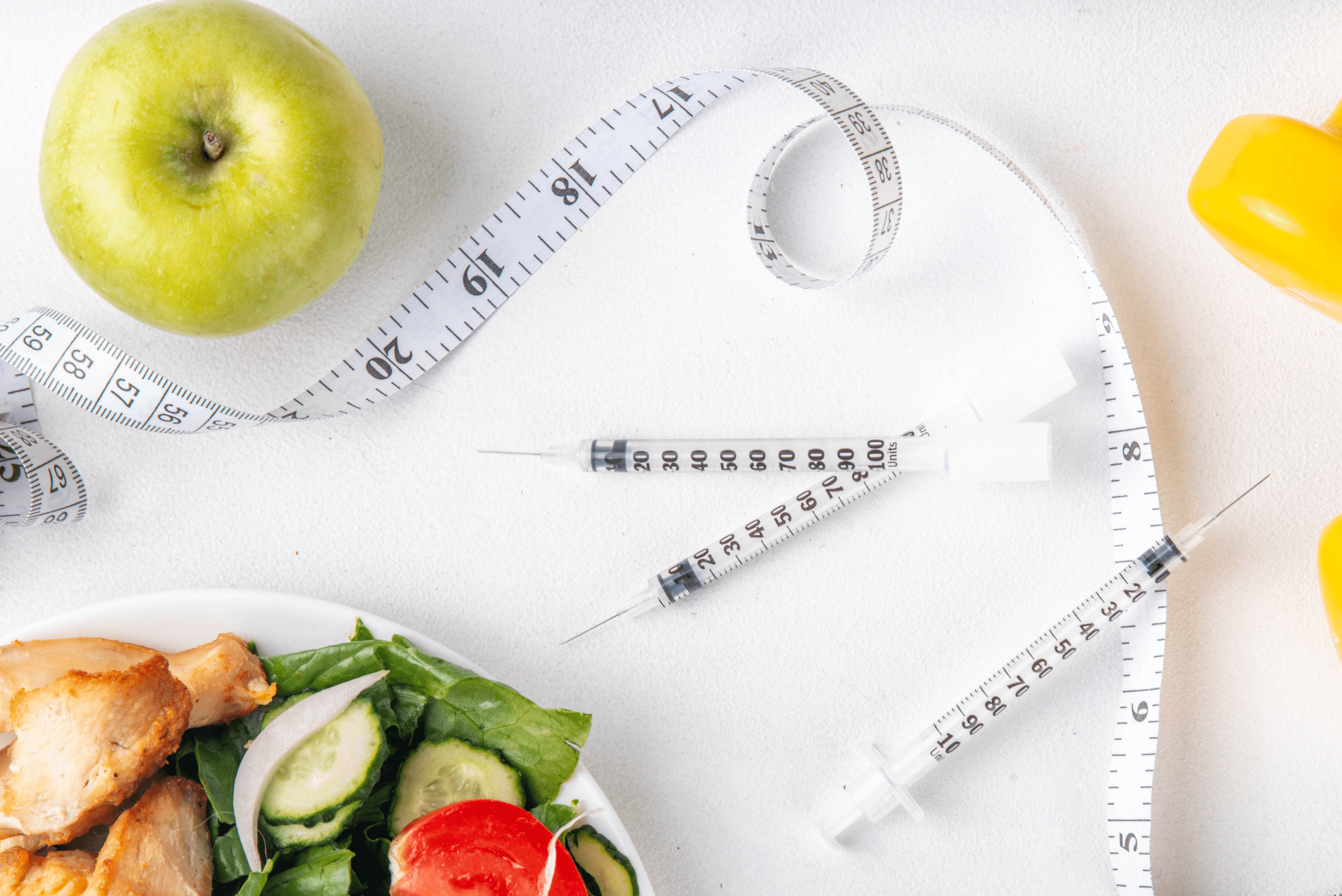Can supplements lower blood sugar levels and improve diabetes? Here’s what the science says
It’s hard to think of an ailment for which there isn’t a supplement that promises relief — and Australia’s fastest growing chronic condition is no exception.
With one person estimated to develop diabetes every five minutes, it’s no surprise there are a host of vitamins, minerals and herbs that claim to improve metabolism and lower blood sugar levels.
Earlier this week, the ABC revealed diabetes experts were being used to falsely promote dietary supplements and peddle harmful health advice in deepfake online scams.
It’s prompted concerns people may forgo diabetes medicines in favour of over-the-counter and often unproven vitamins and minerals.
So what’s the evidence for supplements when it comes to type 2 diabetes, and could there be any harms?
Remind me, how does diabetes work?
Diabetes is a chronic health condition in which a person has too much glucose in their blood. Glucose is the body’s primary source of energy and it comes from the food you eat.
“Your body uses a hormone called insulin to help move glucose from the bloodstream into your cells for energy or for storage,” said Melinda Coughlan, a nutrition scientist at Monash University.
“In diabetes, this system doesn’t work properly, leading to high blood sugar levels, and this can cause serious health problems over time.”
Regular blood glucose monitoring is recommended for people using insulin therapy. (CDC Public Health Image Library: Amanda Mills)
Unlike type 1 diabetes, an autoimmune disease in which the body’s insulin-producing cells have been destroyed by the body’s immune system, type 2 diabetes occurs when the body becomes resistant to and gradually loses the ability to produce insulin.
“This type is more common and often linked to lifestyle factors like obesity, inactivity and poor diet,” Professor Coughlan said.
How is diabetes normally treated?
People with type 1 diabetes rely on taking insulin everyday — through injections or delivery devices such as insulin pumps — to ensure they stay within their target glucose range.
Those with type 2 diabetes, on the other hand, can often manage the condition, at least initially, with healthy eating and regular physical activity.
“Diet is really crucial because what you eat directly impacts your blood sugar levels but also your insulin sensitivity,” Professor Coughlan said.
“You want to limit refined carbohydrates — sugars and high glycaemic index foods like white bread, pastries and sugary drinks — and you want to opt for complex carbohydrates, such as wholegrains, legumes and non-starchy vegetables.”
Exercise is also important because it helps increase your “glucose disposal rate”, Professor Coughlan said, so your body uses glucose effectively rather than storing it as fat, which can further drive insulin resistance.
However, many people with type 2 diabetes eventually require medicine as their body’s ability to produce insulin further deteriorates.
Metformin is the primary first-line medication to treat Type 2 diabetes. (Getty Images: Francis Dean)
Metformin, a drug which improves insulin sensitivity, is the most common first-line treatment, but there are several classes of diabetes drugs available, endocrinologist and diabetes researcher Jonathan Shaw said.
“The reason we use metformin and a range of other drugs is that they have been studied very carefully,” Professor Shaw, who is also deputy director of the Baker Heart and Diabetes Institute, said.
“We have established, typically in multiple clinical trials … that they actually lower blood glucose, and that they’re safe.”
What’s the evidence for supplements?
A number of studies have investigated the potential benefits of dietary supplements for the prevention and treatment of type 2 diabetes, but the overall quality and amount of information we have on them is “limited”, Professor Shaw said.
“Generally, the evidence around these supplements is much weaker than what exists for drugs,” he said.
Some studies suggest chromium (a mineral), berberine (derived from plants) and cinnamon might help with blood sugar control, while alpha-lipoic acid (or ALA, an antioxidant) might reduce pain associated with diabetes-induced nerve pain.
There is also some research to suggest magnesium may improve insulin sensitivity and blood sugar control, while evidence for vitamin D is less convincing — and similarly weak for herbal supplements including bitter melon and ginseng.
According to the US National Institutes of Health, there is “weak evidence of a possible benefit” for a few dietary supplements, but for most, there isn’t evidence to support a beneficial effect for diabetes.
“There is no doubt that there is some evidence — for at least some supplements — that they may be helpful,” Professor Shaw said.
“But the amount of information, the size of the trials, and the quality of the trials is often far inferior to what we have for drugs.
“I don’t have any objection to the idea of using [supplements]. I simply think we should stick to things for which there is good evidence.”
He added that the limited evidence available for supplements was almost entirely restricted to their effects on blood glucose levels — and not the complications of diabetes such as kidney disease, eye disease, foot problems, heart attacks and strokes.
“In the end, the main thing we’re trying to do is prevent people from having things that make them unwell, put them in hospital or even kill them,” Professor Shaw said.
“For most of the prescribed drugs we use, we have clear evidence on whether or not they have benefits on those outcomes … and we just don’t have any of that kind of information for supplements.”
Are supplements regulated?
In Australia, most supplements fall into the category of low-risk complementary medicines, which means the Therapeutic Goods Administration only regulates them for safety and quality — not for whether they actually do what they claim to.
Prescription medicines, meanwhile, undergo rigorous assessment for safety, quality and efficacy, Professor Shaw said.
Professor Jonathan Shaw is deputy director of the Baker Heart and Diabetes Insititute in Melbourne. (Supplied: Baker Institute)
Large clinical trials of prescription medicines allow researchers to understand possible side effects, and determine which people should not be prescribed certain treatments.
“Drugs can only be licensed if they have been extensively studied, whereas supplements … there isn’t a large body of evidence that is developed to understand their strengths and weaknesses,” he said.
Are supplements likely to do any harm?
If you’re considering taking a supplement for diabetes prevention or management, it’s important to speak with a GP or health professional first.
That’s because supplements — even those made of natural ingredients — can sometimes cause side effects or interact with other medications, Professor Coughlan said.
“They could, for example, intensify the effect of your diabetes medication, causing low blood sugar or hypoglycemia, which can be dangerous,” she said.
When considering potential harms, Professor Shaw added that “harm to your back pocket” was also something to consider.
“If you’re paying for something and it has no benefit, then there is a harm — on your bank balance”.
For people with type 2 diabetes, he said the risk of serious harm from supplements was likely to be “pretty small” in the short-term, but he stressed that people with type 1 diabetes should never take supplements in the place of insulin.
“People with type 1 diabetes get into a lot of trouble very quickly without insulin,” he said.
“In type 2 diabetes, if you go off your medication and go onto something that isn’t working well, it’s not good for you in the long term. If you’ve got type 1 diabetes, going off insulin can be fatal.”
Share this article:











